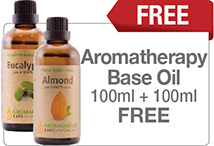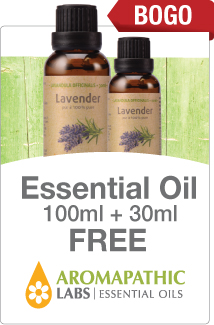Osteoporosis
Updated Feb. 22nd, 2018
Bone loss is a major concern for both women and men, but more so for women (due to hormonal factors) who generally lose more bone mass than men. Your bones need to be given adequate levels of the nutrients that they need to repair themselves. When you are deficient (or due to other aggravating factors) loss of bone mass results.
Clinically, osteoporosis is a loss of bone density that surpasses the amount that normally occurs due to aging. The spine and hips are the most vulnerable areas. Women are most commonly affected especially after menopause when they lose the protective effect of estrogen. As the bones become brittle they fracture and collapse more easily. The degeneration results in pain and decreased mobility.
Osteoporosis is caused by a number of factors including a sedentary lifestyle, lack of minerals, hormonal changes, hypothyroidism, smoking, a high protein diet, alcohol intake, caffeine intake and stress. Long term use of the following medications decreases bone density - antacids, blood thinners, diuretics, anti-seizure medication, ulcer medication and all corticosteroids.
Osteoporosis is treated conventionally by several medications. Bisphosphonates inhibit bone resorption. Calcitonin prevents further bone loss but can cause kidney stones. Raloxifene acts like an estrogen to help to maintain bone density. Synthetic hormone replacement is also used to prevent bone loss. All of the medications have potential side effects.
Natural support for osteoporosis involves the use of diet, supplements and physical therapies to maximize the body’s use of nutrients and minimize factors that cause the body to move nutrients out of the bones.
Nutritional supplements can help in four main ways: by supplying optimum levels of absorbable calcium, by supplying synergistic nutrients that optimize the activity of calcium and it’s subsequent uptake by the bones, by helping to maintain an alkaline PH balance, and lastly, maintaining a healthy hormone balance.
Supplying optimum levels of active and absorbable calcium is crucial for maintaining bone mass. The optimum daily allowance (the amount needed for promoting health) is 1500mg with 750mg magnesium.
This is the elemental dosage, which refers to the actual amount of calcium available to the body for absorption. However, not all types of calcium are absorbed equally by the body. In fact, the most commonly used form of calcium available in most drug and grocery stores – calcium carbonate – is derived from rock.
The superior forms of calcium for the average person are chelate and citrate. Both of these active forms of calcium have been bound to another nutrient so that they can permeate cell membranes more effectively than the calcium in its raw state.
In the case of the chelate type, the calcium has been bound to a protein that enhances its bioavailability; the citrate type has been bound to citric acid.
A third therapeutic form of calcium is specific for people with identifiable loss of bone mass. This is the form of calcium that is actually found in the bones. It is called CMHA, or calcium microcrystalline hydroxyapatite. It has been clinically proven to increase bone mass and decrease loss of bone mass, but should only be used by those with diagnosed osteoporosis or those who are at a substantial risk.
Synergistic nutrients can make a substantial difference in the uptake of calcium by the bones. For a variety of different reasons calcium can be difficult to absorb - one of them being that as a mineral, calcium has a negative charge that can repel it from the cells of the body. It’s very important, then, for people concerned about bone health that nutrients be taken along with calcium. Some of them include: magnesium (in a 2:1 ratio), zinc, silica, manganese, copper, boron, and potassium. While there are others, these are the ones that can make the biggest difference for bioavailability. Some of these, like magnesium and zinc, can increase absorption in the gut, while others, like the boron and silica increase the actual uptake of calcium by the bones and its subsequent integration as new bone mass.
Maintaining and alkaline PH in the body is important because an acidic environment in the body leaches calcium and other minerals out of your bones. This occurs because your body – in an attempt to neutralize excess acidity will use its resources of alkaline substances (in this case the minerals from your bones) to harmonize its PH. Over time, this will eventually lead to loss of bone mass. A good quality green food supplement taken on a daily basis can help to increase the alkalinity of your body. So will most minerals, but in particular the mineral potassium. Consider monitoring your PH daily with ph paper strips, or with an electronic ph meter. These can help you gauge your ph accurately and allow you to adjust your supplements and your diet appropriately.
Hormones can have a large impact on how much calcium you absorb and how much mass that you’re able to maintain in your bones. Both Estrogen in women and testosterone in men assist in the absorption of calcium and it’s preservation in the bones. For women there are several herbs and supplements that have an estrogenic effect in the body. They include: dong quai, soya isoflavones, and Vitex. The essential fat GLA (from primrose or borage oil) can help to optimize progesterone, which has a regulating effect on estrogen. For men, testosterone production can be maximized with the herb tribulus terrestris (also called puncture vine). It works so well in this respect that body builders and men with declining libido also use it.
In respect to a bone building diet, many of the same principles apply. Eat foods that are high in calcium such as, green leafy vegetables, seaweeds, eggs, shellfish, figs, whole grains and fermented dairy products. Silica helps to maintain strong bones and can be found in rolled oats. Vitamin D and magnesium help calcium to assimilate into the bones. Eat cold-water fish, egg yolk and cod liver oil for vitamin D. Vitamin D can be manufactured in the skin when it is exposed to sunlight however this process is compromised in Northern climates. Eat wheat germ, millet, oats, rye, cashews, seaweeds and vegetables to get magnesium into your diet. Soy products should be consumed because the plant estrogens they contain help to prevent bone breakdown. Avoid coffee, carbonated beverages and animal products because they increase calcium excretion. Avoid almonds, chard, rhubarb and spinach because they contain oxalic acid, which inhibits calcium uptake.
Weight bearing exercise and strength training increase bone density and should be a part of your daily routine.























Absorption as this article points out in its discussion of calcium is everything. You can swallow all of the cal-mag that you want, but if you're not absorbing this bone mineral and using it they way your body needs it, then you're not getting the most out of your supplements. Vitamin D is actually a hormone as well as a vitamin, and like all hormones, it tells your body what to do with things - in this case, to put the calcium in your bones. However, sometimes the calcium stays in your blood longer than it should and then becomes encrusted on your joints or in your arteries. This is where the Vitamin K comes in, as it will help to prevent the calcium from being deposited where your body DOESN'T need it.
Hello Olinka,
Thank you for sharing, we love to hear from our knowledgeable customers, such as yourself. Since you've been enjoying our articles, we think you might enjoy our youtube channel as well, check it out at the link below:
https://www.youtube.com/channel/UClBjYPog9j0VY0gcIt-Tq2Q
Stay healthy & well!
Osteoporosis is a condition that I have always associated with aging bones, but it appears that it can occur at any moment given the right conditions, which is scary if you don't take care of your health! It appears that loss of calcium is so common, especially now a days when most foods leach calcium from your bones rather than replenish them. I have realized through reading this article that I need to take better care of my bones and get more calcium!
Hello, Rose With Thorns,
Bone health is very important and it's good to be proactive and nourish your bones before there becomes an issue. Explore more bone supporting nutrients in our other articles: https://www.nationalnutrition.ca/articles/supplements/vitamin-d/